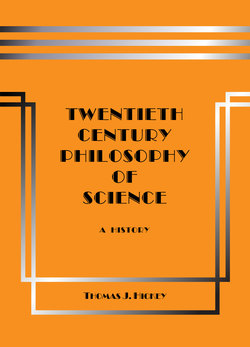Читать книгу Twentieth-Century Philosophy of Science: A History (Third Edition) - Thomas J. Hickey - Страница 7
На сайте Литреса книга снята с продажи.
1.02 Computational Philosophy of Science
ОглавлениеComputational philosophy of science is the design, development and application of computer systems that proceduralize and mechanize productive basic-research practices in science.
Philosophy of science has changed. Mechanized information processing has permeated almost every science, and is now belatedly intruding into philosophy of science. Today computerized discovery systems facilitate investigations in philosophy of science in a new specialty called “computational philosophy of science”.
The pragmatist philosophers Charles Sanders Peirce and Norwood Russell Hanson had described a nonprocedural analysis for developing theories. Some called this nonprocedural practice “abduction”, others “retroduction”. Today in computational philosophy of science procedural strategies for developing new theories are coded into computer systems.
1978 Nobel-laureate economist Herbert Alexander Simon, a founder of artificial intelligence, called such systems “discovery systems”. In the 1970’s Hickey called the mechanized approach “metascience”. In the 1980’s philosopher of science, Paul Thagard, called it “computational philosophy of science”, a phrase that is more descriptive and therefore will probably prevail.
Philosophers of science can no longer be content with more rehearsing of the Popper-Kuhn debates of half a century ago, much less more debating ancient futile issues such as realism vs idealism.
Mechanized simulation of successful episodes in the history of science is often used to test the plausibility of the discovery-system designs. But the proof of the pudding is in the eating. Application of computer systems at the frontier of a science to propose new empirically superior theories further tests the systems, where prediction is also production. Now philosophers of science must practice what they preach by participating in basic-science research and producing results. Application of discovery systems gives the philosopher of science a practical and consequential rôle in basic-science research.
